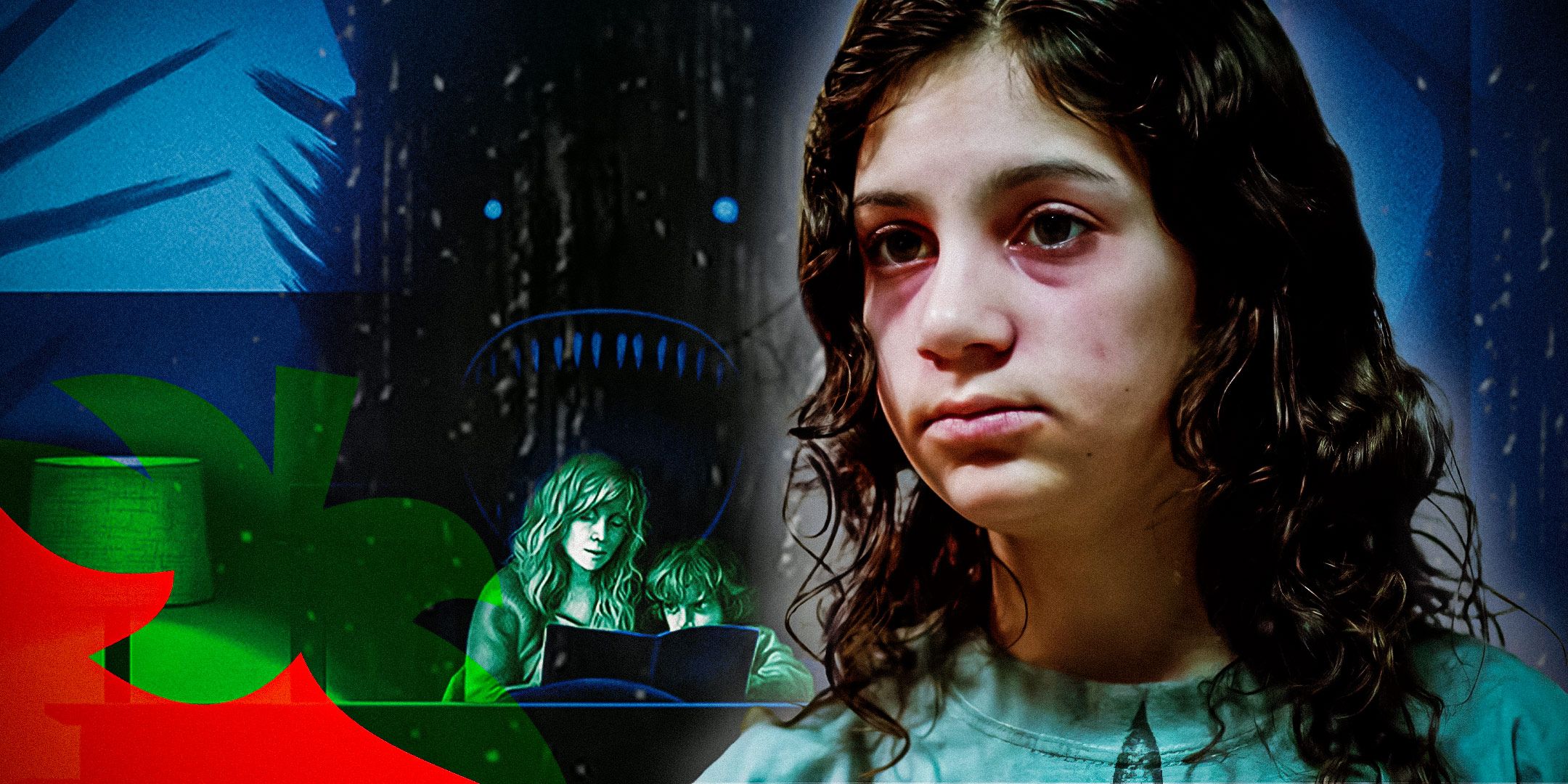German film funding revamp crucial for Babelsberg companies.
A much-needed film funding reform in Germany has become critical for the local industry and for Berlin’s Studio Babelsberg in particular, as it welcomes new management and bids farewell to longtime head of production Henning Molfenter, who has launched a new company.
Studio Babelsberg appointed former Warner Bros. exec Joerg Bachmaier as new CEO in November and in December brought in industry veteran and producer Marcus Loges to succeed Molfenter as managing director of Studio Babelsberg Motion Pictures.
The studio has remained active with such recent productions as Tom Tykwer’s Berlin Film Festival opener “The Light,” Wes Anderson’s “The Phoenician Scheme” and Robert Schwentke’s thriller “Control,” starring James McAvoy and Julianne Moore. It’s starting the new year with three series productions on its backlot: Season 2 of Hulu’s “Nine Perfect Strangers,” “Ten Percent” for Disney+ Germany and Season 5 of local hit “Babylon Berlin.”
Yet it continues to face stiff competition from neighboring countries that boast more attractive incentives for film and TV productions.
Germany’s film sector is grappling with economic woes and a much heralded film funding overhaul that was left unfinished by the government’s recent collapse. With new elections set for Feb. 23, Germany’s next government is expected to continue with the reform and introduce new incentives.

For Studio Babelsberg and Molfenter’s newly established service and co-production shingle Babelsberg Production Group, an improved film funding system is essential to better attract international productions to Germany.
The government increased two vital support funds in December and again in February, the German Federal Film Fund (DFFF) and the German Motion Picture Fund (GMPF), raising their rebate levels on production costs from 25% to 30%, but more is needed, said Bachmaier and Molfenter.
The key DFFF II incentive supports film projects with production costs of €20 million or more. It covers up to 30% of those costs while capped at €25 million but has a theatrical release obligation that excludes major TV and streaming productions.
The GMPF supports series and films, likewise covering 30% of costs, and its caps have now been doubled to €20 million for series and €5 million for movies.
The next government is expected to deliver on other planned measures, including a highly anticipated 30% tax incentive model that has widespread backing as well as a more controversial investment obligation for broadcasters and streamers.
“The recent news on the existing incentive, especially the increase from 25% to 30% and now the increase in the caps, especially the doubling of the GMPF caps, is a major step in the reform of film funding in Germany — it has sparked optimism and had an almost immediate effect on our negotiations with local and international production companies,” said Bachmaier. The increase sends a clear signal that “Germany is open for business.”
As a transitional solution, the funds’ extensions offer “urgently needed planning security for local studio operators and production service providers,” he added. “We expect more domestic and international production activity in Germany.”

The studio is currently in talks for two international productions as well as several German film and series projects. “However, a lot depends on how quickly the new guidelines and the federal budget are approved and how quickly the incoming government will implement the new tax credit,” Bachmaier said.
A “robust tax incentive” is critical “for Studio Babelsberg — and Germany as a whole — to remain competitive on the global stage,” he stressed. “A tax incentive with a competitive rate of at least 30%, automatic and uncapped, inclusive of film, television and streaming, is essential to attract major productions.”
Molfenter likewise welcomed the recent DFFF and GMPF boosts: “Increasing the film and TV incentive to 30% and raising the GMPF cap from €10 to €20 million per TV series is a strong signal that will help us to attract productions immediately.”
Prior to the latest increase in February, Molfenter had warned that streaming productions in particular suffered from the GMPF’s previous €10 million cap and had called for an increase to €25 million.
“The 30% announcement was a good first step, but it’s not enough,” he said. The DFFF’s theatrical release obligation should also be removed, he stressed.
Molfenter noted that “a certain budget level has been erased. It’s either the €150 million plus or the lower budget — the middle section is gone.”
That middle section of theatrical has largely moved to streaming. “And that’s where we’re losing the business. There’s our problem.”
Without those necessary steps, 90% of what’s possible in Germany will be lost, he said. “We’re fighting for the 10% that is left. We’re still successful in that fight — Berlin is still a big draw.”
Further improvements to the incentives, including the tax rebate, would fix the situation, Molfenter added. “Then we are back competing for many more productions that are out there. It will happen.”
At Studio Babelsberg, Molfenter served as executive or co-producer on such high-profile projects as Steven Spielberg’s “Bridge of Spies,” Quentin Tarantino’s “Inglorious Basterds,” Wes Anderson’s “The Grand Budapest Hotel” and Chad Stahelski’s “John Wick Chapter 4.”
His new company will continue the business he’s built up for 25 years, offering customers what’s best for their individual projects, putting packages together and bringing the productions to Germany, he said.
Babelsberg Production Group offers “a gateway to locations and world-class crews with high-level experience in film and TV. Also, we can provide access to the city of Berlin and unlock all available federal and regional incentives that you can find in Germany. That’s a powerful mix.”
With offices in Babelsberg and Berlin, Babelsberg Production Group will service and co-produce international film and TV productions shooting in Germany and Europe, including projects that might go to Studio Babelsberg.
“We left on very good terms,” Molfenter said. “The idea is to still bring films to Babelsberg, to use the construction business, to use their stage business. Whenever I can bring a film to a big stage, I will.”
Molfenter said he felt it was more beneficial for him to start the new company in view of Studio Babelsberg’s new ownership structure.
U.S. group TPG Real Estate Partners took over Studio Babelsberg in 2022 from former owners Charlie Woebcken und Christoph Fisser. It is now part of the group’s Cinespace Studios division, which also operates facilities in Atlanta, Chicago, Toronto and Wilmington, N.C.
Working as an independent producer offers greater flexibility and puts him in a better position to address the individual needs of international customers, Molfenter noteD.
“I think what customers want — and that was always the recipe for success — is a service company on the ground in Germany that understands the U.S. and the international way of filmmaking and then puts specific elements together that are beneficial for each individual project using creativity and thinking outside of the box to get the production the best deal possible. I felt I was better off in a new independent structure.”
Customers often ask for something different and “a new company, separate from Babelsberg, can fulfill those customer wishes a lot better while still bringing the advantages of a big stage facility to the table,” he added.
Molfenter is also prepared to assist projects shooting across Europe, but would prefer to see more in Germany.
“We’ve always worked with European companies, but the idea is not to go to Prague or to Budapest. The idea is to bring films to Berlin and to Babelsberg.”
It was something Molfenter achieved working on Spielberg’s “Bridge of Spies” when he recommended as an ideal location the Polish city of Wroclaw, which also happened to be the home town of Janusz Kaminski, the film’s cinematographer.
Although initially concerned that the producers might decide to shoot the entire film in Poland, the project remained with Studio Babelsberg and ended up shooting on location in Wroclaw as well as in and around Berlin and on the studio lot.
“The producers liked us because we were creative, we were making bold decisions,” Molfenter recalled, adding that while his recommendations may have seemed counterintuitive, particularly on a business level, they were appreciated. “They respected this and trusted us.”










